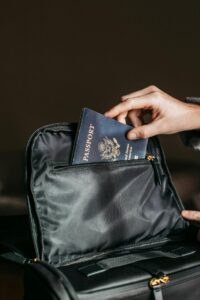When it comes to laws that protect survivors of domestic violence, the Violence Against Women Act (VAWA) is one of the most significant in the United States.
VAWA is a provision that allows people with abusive U.S. citizens or lawful permanent resident as relatives to apply for a green card by self-petition. Since it was passed in 1994, VAWA has been improved and amended to better support survivors of domestic violence and sexual assault.
But while many people are aware of VAWA, not everyone knows about the specific provisions made to help victims of domestic abuse access the resources they need to stay safe. In this article, we will explore three important VAWA laws that everyone should be familiar with and how these laws make a difference.
Housing Protections for Victims of Domestic Violence
Many survivors of domestic violence struggle to find safe and stable housing primarily because of discrimination from other people. To prevent this, VAWA made housing protections for survivors of domestic abuse living in public housing or any other housing under the Department of Housing and Urban Development (HUD) rental assistance programs.
This protection ensures that victims of domestic violence, dating violence, or sexual assault cannot be denied housing, evicted, or have their housing assistance terminated solely because of what they have been through. In essence, survivors are legally protected from discrimination when searching for housing.
Additionally, victims of domestic violence have the right to seek early termination of their lease without penalty. This means you can quickly transfer to a different housing unit if you feel unsafe in your current one without worrying about the legal consequences of breaking your lease early. These protections allow victims to escape abusive environments without the fear of losing their housing.
Restraining Orders and Enforcement
Restraining orders can be really helpful in keeping the abuser from going anywhere near the victim of domestic violence. But up until VAWA, restraining orders issued in a particular state were only enforceable in that state. So if a victim runs to another state to get away from their abuser, they often have to go through the entire process of obtaining a new restriction order in the new state.
When VAWA was reauthorized in March 2022, it made provisions to ensure that a restraining order issued in one state is recognized and enforceable across all states in the US. This means that if you’re granted a protection order in California, it’s just as valid in New York, Florida, or anywhere else in the country. This nationwide enforceability prevents abusers from moving between states to escape punishment.
Self-Petition for Victims of Domestic Abuse
This provision allows victims to file for a VAWA green card independently, without the knowledge or participation of their abusive relative. This allows them to file a self-petition without fear of retaliation from their abuser. Along with this, VAWA offers aid like legal help, medical care, and discounted housing for up to 24 months to help victims of domestic violence rebuild their lives.
Main Challenges Faced in the Implementation of VAWA Provisions
Of course, no legislation is without its challenges. Some of the common challenges that affect the implementation of VAWA include:
-
Inadequate Funding
While VAWA provides certain protections and services for survivors, the availability of funding to support these services is not always available. A shortage of staff and resources affects the ability of these organizations to offer support services to victims of domestic violence.
Furthermore, the demand for these services is often more than the resources available, resulting in gaps in support that can leave survivors lacking assistance.
-
Limited Coverage in the Enforcement of Its Provisions
Although VAWA strives to provide protection for the survivors of abuse, it can be difficult to make sure that these provisions are properly implemented. Some landlords or housing providers may not be fully aware of their obligations under VAWA, making it difficult for victims of domestic abuse to get the support they are entitled to. This lack of awareness and understanding can make it difficult for survivors to find stable housing solutions.
-
Stigma Around Victims of Domestic Violence
Despite the progress made in raising awareness about domestic violence and sexual assault, there is still a significant amount of stigma attached to the victims. This stigma can be in the form of victim-blaming, disbelief, or even reluctance to provide support to survivors. Attitudes like this towards survivors make it harder for them to come forward and seek help, especially when it comes to asserting their rights under VAWA. The fear of being judged or not believed can prevent them from accessing the protections and resources they need.
Changing people’s attitude towards survivors of domestic violence is crucial, and one way it can be done is through public education campaigns and community outreach. Educating people on domestic violence and other types of abuse can stop any harmful stereotypes and ensure that survivors feel confident to seek the assistance they deserve without fear.
Conclusion
So, there you have it, some vital VAWA laws that you should know about. Understanding these provisions helps guarantee the protection and support of victims of domestic violence and other forms of abuse from relatives. If you or someone you know is experiencing domestic violence or sexual assault from their spouse or parent, they can reach out to the National Domestic Violence Hotline at 1-800-799-7233 for help.
When it comes to obtaining legal advice and representation when filing a VAWA self-petition, you can rely on Coleman Law Group to accompany you throughout the process. When we handle your VAWA case, you can be confident you’ll get the best outcome. Reach out to us today to get the legal support you need.



